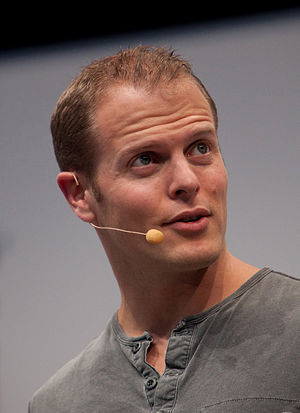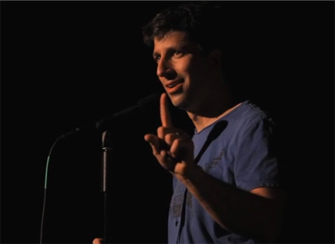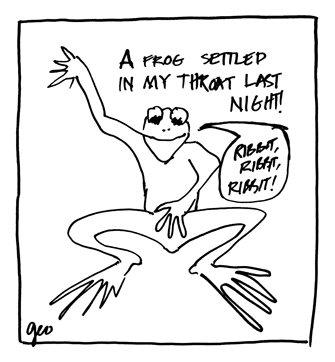Like many writers and readers I’ve been chewing on Neil Genzlinger’s “Problem With Memoirs” and swinging back and forth between reproach and praise. It’s a provocative piece that continues to provoke dramatic responses.
There was a time when you had to earn the right to draft a memoir, by accomplishing something noteworthy or having an extremely unusual experience or being such a brilliant writer that you could turn relatively ordinary occurrences into a snapshot of a broader historical moment. (NYTimes.com)
My reactions are complicated by the fact that Rosslyn Redux, my current work-in-progress, is a memoir. Besides, I agree with Genzlinger that an awful lot the whiny, angry drivel masquerading as memoir should still be standing vertical in forests.
Over the last few months that I’ve been chasing publishing answers and advice I’ve often heard that the best selling memoirs are born of strong platforms, not strong writing or stories. Celebrity memoirs are the obvious example. Publishers apparently love them because they sell, sell, sell. Makes sense. But doesn’t exactly fuel the sort of mighty memoir creation that Genzlinger craves. He acknowledges that there’s plenty of quality memoir being produced, but it’s swamped by forgettable, regrettable spamoir!
Sure, the resulting list has authors who would be memoir-eligible under the old rules. But they are lost in a sea of people you’ve never heard of, writing uninterestingly about the unexceptional, apparently not realizing how commonplace their little wrinkle is or how many other people have already written about it. (NYTimes.com)
That he lumps unheard-of memoirists with porridge producers continues to bug me. He seems to suggest, albeit obliquely, that memoir writing should be limited to writer’s sitting atop successful publishing careers. Or celebrities? Maybe this is like the agents and publishers and editors drumming the “Platform, Platform, Platform” chant. Or maybe he genuinely believes that memoirs will be better if written by widely known/read authors. In any case, I don’t understand. And — as a newbie — I’m annoyed to be categorically dismissed. Porridge producers, be damned. But I’m confident that newbies can dish up delicacies too.
Am I being thin skinned? Sure. And this is the complexity of Genzlinger’s piece. I credit that he’s intentionally pushing buttons, intentionally chastising and provocative. And the brunt of his thinking is spot on. He closes with advice:
If you didn’t feel you were discovering something as you wrote your memoir, don’t publish it. Instead hit the delete key… (NYTimes.com)
Sure, he’s posturing and fanning the flames, but he’s right. But who decides? Writing and storytelling and memoir are subjective. And the marketplace often veers wildly from the literary merits of work published. Obviously the authors have a tough time typing “The End” and then condemning the preceding 180k words to the dustbin. And publishers are altogether too happy to pass the porridge along to starving readers with deep pockets. So who decides? Perhaps his point lies elsewhere; perhaps he’s simply trying to redefine what makes a good memoir.
That’s what makes a good memoir — it’s not a regurgitation of ordinariness or ordeal, not a dart thrown desperately at a trendy topic, but a shared discovery.(NYTimes.com)
This sings, soars, then arcs toward the target. Bulls eye! Bravo, Gun-slinger. This is what he’s after, the recipe for a meaningful memoir. And I want to stand and pump my fists in the air as I cheer and bellow, “Hurrah!”Memoir is discovery.
I differ with Penny Jar who’s response to “the great wack-a-doo in the memoir world” unleashed by Genzlinger’s piece concludes that a manifesto to brilliance is at work.
I don’t see the article as being the snobby, dodgy, shut-your-pie-hole critique it may have been served up as. I think it’s a call to brilliance. (Penny Jar)
Brilliance and excellence, yes, but this is always the case in great writing. What sets memoir apart? Discovery. I’m reading Vivian Gornick’s The Situation and the Story which breaks down this discovery even further into the narrator’s discovery of self through a larger, more plot-driven discovery. (I’ll tackle this idea again soon in another post.)
which breaks down this discovery even further into the narrator’s discovery of self through a larger, more plot-driven discovery. (I’ll tackle this idea again soon in another post.)
Absent the discovery, memoir is a pointless chronicle, a panful traipse through the wasteland of experience. So what? Who cares? If the reader is to become invested in the story, the author must share their discovery openly, honestly, artistically.
In “Writing Memoir: Art vs. Confessional” Susan Cushman develops this last idea further by referencing a comment made by Scott Morris (Waiting for April and The Total View of Taftly
and The Total View of Taftly ) a couple of years ago during a manuscript critique workshop she attended in Oxford, Mississippi:
) a couple of years ago during a manuscript critique workshop she attended in Oxford, Mississippi:
A memoir must be artful and not just real. Yes, you’ve lived it—the abuse, the loss, the suffering—now you have to get up and above it, distance yourself, and spin a good yarn. You’ve got to create art from what you lived. (There Are No Rules)
So, where does this leave us? I’m still swimming upstream, trying to distill 400k of regurgitation into a tidy story. I’m enjoying the journey, but the discovery is still unraveling. As for art, though I’m courting her night and day, she’s an elusive soul. Not giving up yet…
Are some memoirs better as fiction?
Like this:
Like Loading...
is available at Amazon.com in paperback and Kindle editions.















